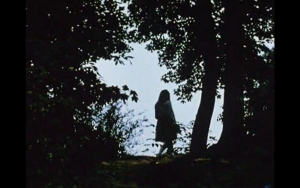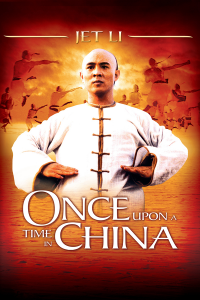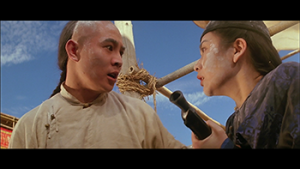FILMS OF JAMES BLUE: UO AND BEYOND
4:00 p.m.
Jordan Schnitzer Museum of Art
Free
In celebration of the deposit of the James Blue Archive at UO Special Collections, we are pleased to premiere a rare find in the archive. James Blue directed a 40-minute parody of Hamlet with a cast and crew of UO Drama students and friends in 1951-52. Blue’s Hamlet was a huge sensation when it screened on campus to more than 2,000 people in the UO Student Union ballroom. Word of this sensational student production even attracted national attention through an article in the March 1953 issue of the amateur film magazine, Movie Makers. The film was recently in the Blue Archive and will be presented for the first time on campus since 1955. It demonstrates Blue’s precocious talent. He would go on to win the Critics’ Prize at the Cannes Film Festival and an Academy Award nomination for later films.
Also on the program today will be the following film inspired by James Blue and produced by Journalism Professor Daniel Miller:
The March Continues: 50 years of Civil Rights Struggle Past, Present and Future (21m.)
This film celebrates the legacy and ongoing strength of the civil rights movement. It focuses on two marches, The March on Washington in August 1963 and The March on Washington in August 2013, juxtaposing then and now. It pays tribute to James Blue’s film of the 1963 March, entitled The March (1963), and, like that film, features both the foot soldiers and leaders of the movement. John Lewis, Julian Bond, Joaquin Castro, Al Sharpton, Bernice King, and many others appear in the film. Their message: The March continues.
Cosponsored with the James and Richard Blue Foundation.
JONAS MEKAS’S WALDEN
7:00 p.m. Jordan Schnitzer Museum of Art
Free
With guest speaker Dr. Scott MacDonald

Jonas Mekas is considered by many to be the “godfather of American avant-garde film.” His photo and video exhibition Frozen Film Frames is on view at the Schnitzer Museum through June 7. Walden was Jonas Mekas’s first diary film, and it was edited as a collection of images gathered between the years 1964 and 1969. Mekas writes: “To keep a film (camera) diary, is to react (with your camera) immediately, now, this instant: either you get it now, or you don’t get it at all . . . it has to register the reality to which I react and also it has to register my state of feeling (and all the memories) as I react. Which also means that I had to do all the structuring (editing) right there, during the shooting, in the camera.” Critic Yann Beauvais writes: “Jonas Mekas’s films celebrate life. They rise up against the world’s overwhelming commercialism, attempting instead to revive the pleasures of friendship, a first snowfall or the return of spring. Mekas’s genius stems from his generously including the viewer in his vision of the world, allowing us to (re)discover, in a simple image, the incredible force and necessity of poetry.”
Scott MacDonald, the leading chronicler of avant-garde filmmakers, is the author of five volumes of the Critical Cinema series (UC Press) and of several other books on avant-garde film. He will introduce Jonas Mekas’s magisterial Walden today, returning tomorrow to present a program of experimental landscape films.
ONCE UPON A TIME IN CHINA
8:00 p.m. Bijou Art Cinemas
Tickets: $6 students/seniors, $8 general public

China, 1991
Directed by Tsui Hark
Screenplay by Yiu Ming Leung, Elsa Tang, Tsui Hark, Gai Chi Yuen
Cinematography by Tung-Chuen Chan, Wilson Chan, David Chung, Ardy Lam, Arthur Wong, Bill Wong
Editing by Marco Mak
Music by Romeo Dìaz, James Wong
Cast: Jet Li, Biao Yuen, Rosamund Kwan, Jacky Cheung, Kent Cheng
Run Time: 134 minutes
 Once Upon a Time in China is set in the late 1800s, with China in turmoil. Western influence is threatening the pride and sovereignty of the Chinese people, who are being enslaved for foreign labor, or becoming addicted to opium. It falls upon Wong Fei Hung, a renowned doctor, healer, patriot, and kung-fu artist, to stand up and fight. Charged with protecting the region with his militia, Fei Hung becomes embroiled in political intrigue and martial arts rivalries as corrupt foreigners and corrupt Chinese attempt to gain control of the region. When a rival martial arts master joins the foreigners, Fei Hung faces his greatest challenge yet. Can he save his true love Yee (Rosamund Kwan), as well as right the wrongs against his beloved land of China?
Once Upon a Time in China is set in the late 1800s, with China in turmoil. Western influence is threatening the pride and sovereignty of the Chinese people, who are being enslaved for foreign labor, or becoming addicted to opium. It falls upon Wong Fei Hung, a renowned doctor, healer, patriot, and kung-fu artist, to stand up and fight. Charged with protecting the region with his militia, Fei Hung becomes embroiled in political intrigue and martial arts rivalries as corrupt foreigners and corrupt Chinese attempt to gain control of the region. When a rival martial arts master joins the foreigners, Fei Hung faces his greatest challenge yet. Can he save his true love Yee (Rosamund Kwan), as well as right the wrongs against his beloved land of China?
Sporting truly epic fight choreography, Tsui Hark’s Once Upon a Time in China revitalized the wuxia genre and became one of the defining martial arts movies of the twentieth century. Combining kung-fu action, political allegory, and historical drama, Once Upon a Time in China became an international hit and won the Hong Kong Film Award for Best Picture. Martial arts superstar Jet Li took on the role of Wong Fei Hung, a familiar subject of scores of previous films, and audiences could not get enough; he would reprise the role in four sequels.